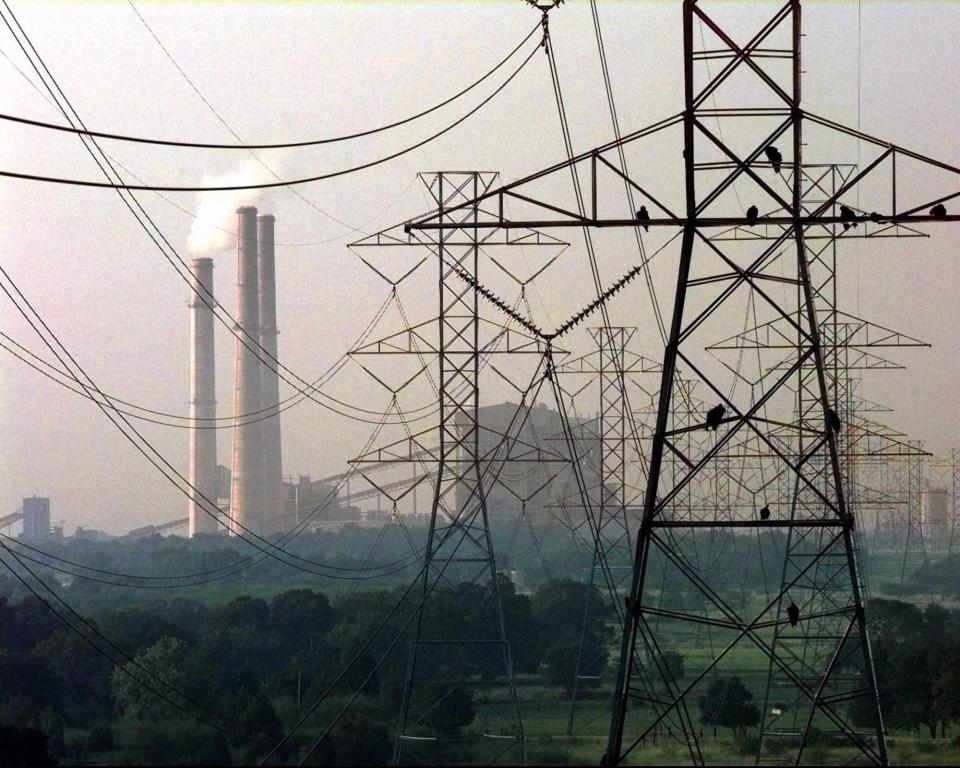Why a new energy trade group is pushing Texas to strengthen its electricity production
A new trade group backed by companies that generate electricity from gas, coal, nuclear and renewable sources says it wants to make sure nothing gets in the way of Texas taking advantage of all the fuel sources it has access to.
"We think that consumers are better off when there's robust competition and we want to make sure that we preserve the benefits of competition to promote more affordable power for all Texans, families and businesses," Walt Baum, the CEO of Powering Texans, told the American-Statesman in an interview.
The trade group launched Thursday and is backed by four Texas electric-generation companies that have plants that produce power from nearly every available source. Baum said the group's advocacy is not to promote one source over the other, but to rely on the free market to guide policy decisions.
Last year, the Legislature established a $7.2 billion low-interest loan and grant program to help finance power plants that can provide the state with “dispatchable” generation that can be fired up quickly to meet fluctuations in demand, such as during times of extreme heat or withering cold.
Such plants typically run on natural gas, coal or nuclear power, meaning the renewable sector is not eligible for the grants and loans. According to a July 2023 report by energy advocacy group Advanced Energy United, natural gas continues to be the leading source for Texas' electric generation. Wind, coal, nuclear and solar — in that order — make up the balance.
A report issued in March by Rice University's Baker Institute for Public Policy found that while wind and solar are the fastest-growing components of Texas' electric generation mix, the state could find itself literally out in the cold and in the dark if dispatchable sources don't pick up the pace.
More: One year later: How the Texas freeze changed us — and Texas
During a deadly winter storm in February 2021, the state's power grid came within minutes from catastrophic failure in a disaster that could have left the state with no electricity for months because so many power plants were unable to operate during a deep freeze and the ones still online could not churn out the power needed to meet the burgeoning demand.
Jim Burke, who heads power generating company Vistra Corp., which is part of the new trade association, said Texas' nearly nonstop growth makes it imperative that all fuel sources have a seat at the state's energy table.
“Texas has an enviable problem — people and businesses are flocking here," Burke said in a news release announcing the formation of Powering Texans. "That growth means demand for electricity is growing as well. It is imperative that the right policies are in place so that the $40 billion electricity industry can meet that demand for years to come.”
More: Can Texas keep the lights on with renewable electric power alone? Here's what experts say.
Vistra boasts a 41,000-megawatt generating portfolio that includes natural gas, coal, nuclear, solar and battery storage facilities. The other companies involved in the new association are Calpine, Constellation Energy and NRG.
Calpine bills itself as the nation’s largest operator of renewable geothermal power plants and cogeneration plants, which convert otherwise wasted heat into electric generation. It also operates natural gas power plants.
About 90% of NRG's power is generated by gas and coal. Only a fraction comes from renewable sources, according to the company's website.

Constellation operates the nation's largest fleet of nuclear power plants, but, according to the company, it also generates power from wind, solar and hydro sources, and it boasts that it has put itself on a path to generate power that is free of carbon emissions by 2040.
All the companies feature pages prominently on their websites promoting their policies of "diversity, equity and inclusion," a goal that has been in the crosshairs of some Texas Republican lawmakers who say such initiatives can undermine individual achievement.
The source of power in Texas is also at times the source of controversy. Austin Mayor Kirk Watson in February said he wants to wean the city-owned electric company off coal as a generating source by 2029. San Antonio's CPS Energy, which is the nation's largest city-owned electric company, said last year it would retire its last two coal-burning units by 2030.
This article originally appeared on Austin American-Statesman: Texas energy production: New trade group says its time to power up

